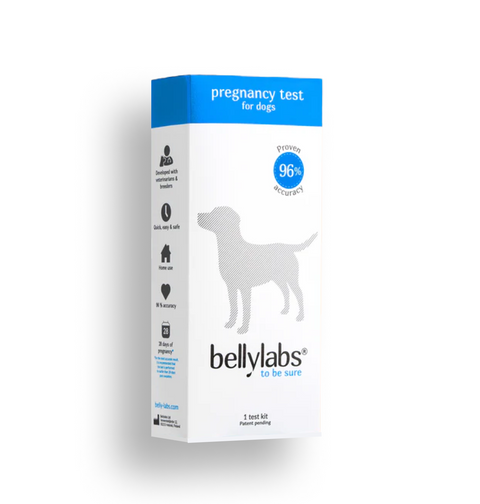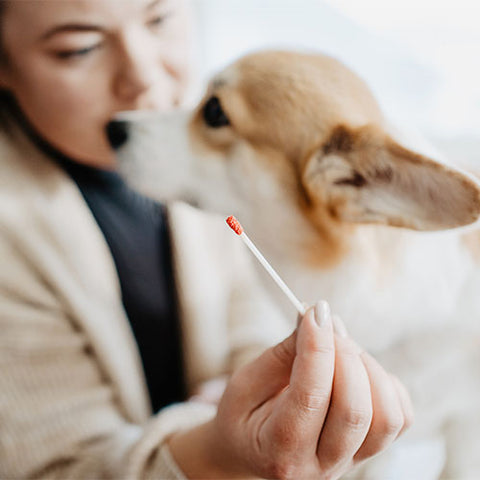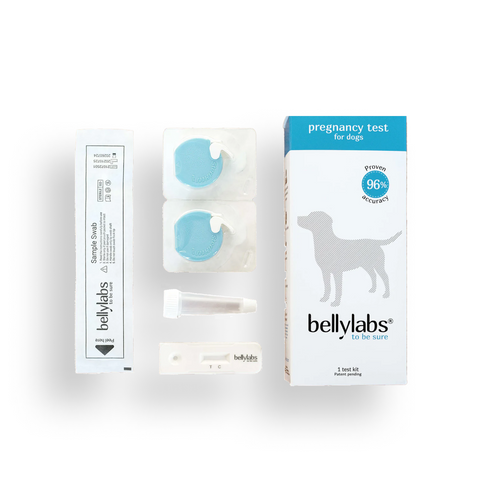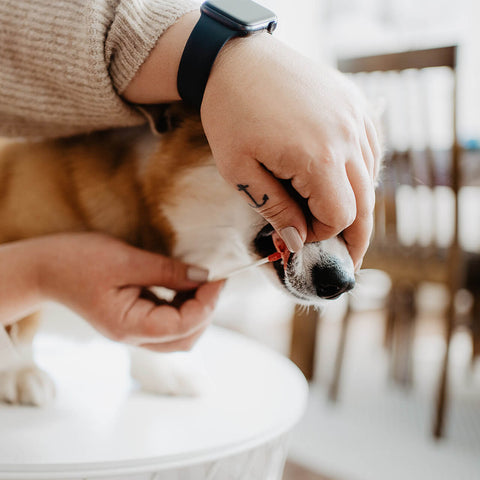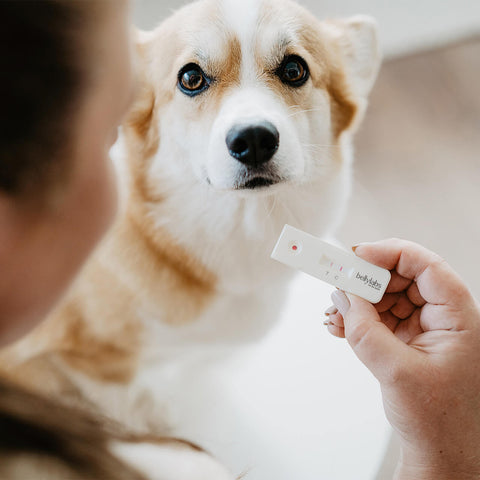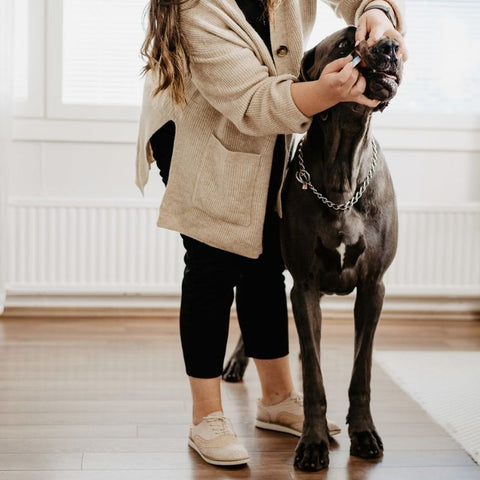Bringing a new litter of adorable puppies into the world is an exciting and rewarding experience for dog owners. However, it's essential to have a thorough understanding of the dog gestation period to ensure the health and well-being of both the mother and her pups. In this comprehensive guide, we will delve into the intricacies of dog pregnancy, covering everything from the duration of the gestation period to the stages of development, signs of pregnancy, and care tips. Let's embark on this journey into the fascinating world of canine reproduction.
The Dog Gestation Period: How Long Does It Last?
The gestation period in dogs, also known as pregnancy, refers to the duration of time between conception and birth. Unlike humans, whose gestation period is approximately 40 weeks, dogs have a much shorter pregnancy. On average, the dog gestation period lasts about 63 days or around nine weeks from ovulation to giving birth. However, this can vary depending on several factors, including the dog's breed, size, and individual characteristics. Also if the date of ovulation is unknown, calculating will be somewhat more difficult.
- Breed Variation:
Different dog breeds may have slightly varying gestation periods. Smaller dog breeds often have slightly shorter pregnancies, while larger breeds may experience longer gestation periods. In general, small breeds like Chihuahuas may have pregnancies that last around 58-63 days, whereas larger breeds like Great Danes may have pregnancies that last closer to 63-67 days.
- Individual Variation:
Just as with humans, individual dogs may experience variations in their gestation periods. While the average gestation period is 63 days, some dogs may give birth a few days earlier or later. It's crucial for dog owners and breeders to monitor the pregnant dog's progress closely and be prepared for potential variations. Litter size may also be a factor in determining how long the gestation period is. If the female dog is very full of puppies, they tend to give birth a bit earlier.
Understanding the Stages of Dog Pregnancy
The dog gestation period can be divided into several stages, each marked by specific changes and developments in the mother and her developing puppies. These stages are crucial to ensuring proper care and monitoring throughout the pregnancy.
- Stage 1: Fertilization and Implantation (0-21 days)
This initial stage begins with the female dog's estrus cycle or "heat." During this period, the dog's reproductive system prepares for fertilization. Female dogs may become more receptive to mating during this time. After successful mating, fertilization occurs, and the fertilized eggs travel down the dog's reproductive tract to the uterus for implantation.
- Stage 2: Embryo Development (21-35 days)
Around three weeks into the pregnancy, the embryos start to develop rapidly. During this stage, it is essential to ensure the mother receives proper nutrition and care to support the developing fetuses. This includes providing a well-balanced diet, maintaining a comfortable and stress-free living environment, and veterinary check-ups. In this stage you can test for pregnancy at home or book a scan with your veterinarian.
- Stage 3: Foetal Growth (35-49 days)
In this stage, the developing puppies experience significant growth. The mother's abdomen may start to enlarge noticeably. It is crucial to continue providing proper nutrition and ensure the mother is receiving adequate exercise without overexertion.
- Stage 4: Preparing for Birth (49-63 days)
As the dog gestation period nears its end, the mother may begin to exhibit signs of nesting behavior. She may also become restless, seek a quiet and secluded place to give birth, and start panting and pacing. It's essential to create a comfortable and secure birthing area for the mother and her pups during this stage. It is important to allow the mother to be separated from other animals in the household to reduce stress.
Signs of Dog Pregnancy
Detecting pregnancy in dogs can be challenging, especially during the early stages. However, several signs and symptoms may indicate that your dog is expecting. Keep in mind that these signs can vary from one dog to another, and not all dogs will exhibit all of them.
- Changes in Appetite:
Some pregnant dogs may experience changes in their appetite. While some may eat more than usual, others may become pickier eaters or show a decreased appetite or “morning sickness”. It's essential to provide a balanced diet tailored to the pregnant dog's nutritional needs. If your pregnant dog stops eating completely, seek the advice of a veterinarian.
- Weight Gain:
Pregnant dogs typically gain weight as the pregnancy progresses. Regular weigh-ins can help monitor this gain, ensuring it is within a healthy range. Be careful not to over or underfeed.
- Enlarged Abdomen:
As the puppies grow, the mother's abdomen will gradually enlarge. This is usually noticeable in the later stages of pregnancy.
- Changes in Nipple Color and Size:
A pregnant dog's nipples may become larger and darker in color as her body prepares for lactation.
- Behavioral Changes:
Some pregnant dogs may exhibit changes in behavior, such as increased affection or restlessness. Nesting behavior, where the dog seeks a quiet and safe place to give birth, is also common in the days leading up to delivery. They may also sleep significantly more than previously. If they become lethargic however, book a visit with the veterinarian.
- Vaginal Discharge:
A clear or slightly bloody vaginal discharge may be observed in some pregnant dogs, especially in the early stages of pregnancy or during implantation. If there is smelly discharge or lots of blood it is best to visit a veterinarian.
- Increased Sleep:
Pregnant dogs may sleep more than usual, especially as they approach their due date.
It's important to note that the most reliable way to confirm pregnancy in dogs is through a veterinarian or a home pregnancy test kit. A vet can perform an ultrasound or hormone test to confirm pregnancy accurately.
Caring for a Pregnant Dog
Proper care during the dog gestation period is crucial to ensure the health and well-being of both the mother and her puppies. Here are some essential care tips for pregnant dogs:
- Veterinary Care:
Schedule regular check-ups with a veterinarian to monitor the progress of the pregnancy. Your vet can provide guidance on nutrition, vaccination, and any potential complications.
- Nutrition:
Feed a high-quality, balanced diet specifically formulated for pregnant or nursing dogs. Ensure the mother receives adequate nutrients, including protein, calcium, and essential vitamins and minerals.
- Exercise:
While exercise is essential, avoid overexerting the pregnant dog especially towards the end of her pregnancy. Short walks and gentle playtime are generally suitable forms of exercise. Consult with your veterinarian to determine an appropriate exercise routine.
- Hydration:
Ensure the pregnant dog has access to clean, fresh water at all times. Proper hydration is vital for her health and the development of the puppies.
- Stress Reduction:
Minimize stressors in the environment, as stress can negatively impact the pregnancy. Provide a quiet and comfortable space for the mother to rest and give birth.
- Nesting Area:
Prepare a safe and cozy nesting area for the mother to give birth and care for her puppies. This should be a quiet, secluded space where she can feel secure away from other pets. The room should be warm with minimal draught. There should be soft and safe towels and bedding with no strings or labels, that may hurt the puppies, for them to sleep on.
- Education:
As a dog owner or breeder, it's essential to educate yourself about the dog gestation period and the birthing process. Knowing what to expect and how to handle various situations can make the experience less stressful for both you and the mother. Seek the help and advice of a more experienced friend or a mentor if you are just starting out.
Potential Complications and When to Seek Help
While most dog pregnancies progress smoothly, there can be complications that require immediate veterinary attention. Some common complications include:
- Prolonged Labor (Dystocia):
If the mother is in labor for an extended period without producing puppies, it may indicate a problem. Dystocia can be life-threatening for both the mother and the puppies and requires immediate veterinary intervention.
- Difficulty Breathing:
If the mother has difficulty breathing, panting excessively, or her gums turn pale or bluish during labor, it could indicate an emergency situation.
- Retained Puppies or Placenta:
In some cases, a mother may have difficulty delivering all the puppies or expelling the placenta. This can lead to infections and other complications. Always keep on track that there has been as many placentas as there has been puppies. A retained placenta can cause a significant infection.
- Weak or Unresponsive Puppies:
If any of the newborn puppies appear weak, unresponsive, or have difficulty breathing, they should receive immediate attention from a veterinarian.
Conclusion
The dog gestation period is a fascinating journey that culminates in the arrival of adorable puppies. Understanding the stages of pregnancy, recognising signs of pregnancy, and providing proper care are essential responsibilities for dog owners and breeders. By following the guidelines in this comprehensive guide, you can ensure a safe and healthy pregnancy for your dog and her puppies. Remember, always consult with a veterinarian for professional guidance and support throughout the pregnancy and birthing process.
References:
. Olson, P. N., & Kustritz, M. V. (2003). Canine and Feline Theriogenology. WB Saunders.
. Root Kustritz, M. V. (2005). Reproductive behavior of small animals. Veterinary Clinics: Small Animal Practice, 35(1), 15-38.
. England, G. C. W., & Concannon, P. W. (2019). Non-surgical management of reproduction in the bitch: Physiologic basis for clinical success. Theriogenology, 125, 286-292.
. Verstegen, J., Onclin, K., & Silva, L. (2018). Canine and Feline Reproduction and Whelping: A Guide for Canine Midwives. CRC Press.
. Hutchison, L. (2005). Fertility and obstetrics in the dog. In Ettinger SJ, Feldman EC, editors. Textbook of Veterinary Internal Medicine: Diseases of the Dog and Cat, 6th edn. St. Louis, Missouri: Elsevier, pp. 1533-1545.





